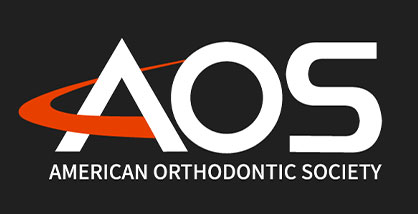What Causes Bad Breath?!
Halitosis, bad breath, can be caused by improper hygiene or more serious medical conditions. Bad breath can be the result of the foods we eat, the lack of saliva (xerostomia or dry mouth), unhealthy lifestyles, gum disease, or medical disorders.
There are two types of bad breath: transient and persistent. Transient bad breath comes and goes. This type of bad breath can typically be eliminated with proper oral hygiene. Persistent bad breath does not go away and is sometimes the sign of a more serious dental or medical condition.
What are some of the causes of bad breath?
Tobacco use – The chemicals found in cigarettes cause bad breath. The tar and nicotine stick to your teeth, gums and tongue. Cigarettes also cause dry mouth, which means you do not have as much saliva to keep your mouth clean. The result is a build up of bacteria that causes a foul odor. Smoking is also a leading cause in periodontal disease, infection of the gums surrounding the teeth, which is a major cause of bad breath.
Dry mouth – Xerostomia, known as dry mouth, is the lack of saliva. Saliva helps aid in digestion, but it also helps to keep your mouth clean from bacteria and food particles. If you do not have enough saliva, you may have excess food and bacteria in the mouth. This may yield an unpleasant smell. Many medications can cause dry mouth. If you suffer from dry mouth, see your dentist for treatment options.
Infection – Bad breath may be the sign of an infection in the mouth or elsewhere in the body. If you have bleeding when brushing and flossing, see your dentist. This may be a sign of gum disease. Bad breath may also be a sign of sinus infection or infection in the tonsils. If you have ruled out an infection in the mouth, your dentist may refer you to your doctor to rule out infection somewhere else in the body.
Diet – Poor diet may be the cause of bad breath. Be sure to eat healthy foods and drink plenty of water. Some people suffer from acid reflux which can cause bad breath. Your dentist can look for signs of acid reflux and refer you to your doctor for treatment if this is the cause of bad breath.
Improper dental hygiene – Without proper dental hygiene, food particles and bacteria result in bad breath. Be sure to brush at least twice a day and floss at least once a day to prevent bad breath. The use of an antimicrobial mouth rinse will also eliminate odor-emitting bacteria in the mouth.
Treatment for Bad Breath
- PROPER ORAL HYGIENE: Be sure to brush your teeth for at least 2 minutes twice a day. Flossing gets rid of odor emitting food and bacteria between the teeth. Floss at least once a day. Mouth rinse will also eliminate bacteria in the mouth. Last but not least, be sure to brush your tongue. Your tongue collects bacteria that can cause a foul odor. A tongue scraper is a great tool.
- FLUORIDE TREATMENT : Fluoride helps to neutralize the mouth, strengthens teeth, and prevents cavities that can cause bad breath. Use fluoride rinse daily when you brush your teeth. Now some rinses are both antimicrobial and fluoride treatments.
- DRINK PLENTY OF WATER : Drinking plenty of water keeps the mouth and body clean. This can also help to prevent dry mouth.
- HEALTHY DIET/HEALTHY LIFESTYLE : Eating a healthy diet full of fruits and vegetables will help to eliminate bad breath. Also, avoid tobacco and alcohol use to prevent build up of chemicals and bacteria that cause bad breath.
If you suffer from bad breath, make an appointment today for the best treatment options as halitosis can be the result of many dental or medical conditions. It is important to see your dentist regularly for dental exams and professional cleanings. Your dentist and hygienist can detect symptoms of gum disease and cavities at the earliest stages. By catching these symptoms early, we can prevent more serious dental conditions.










